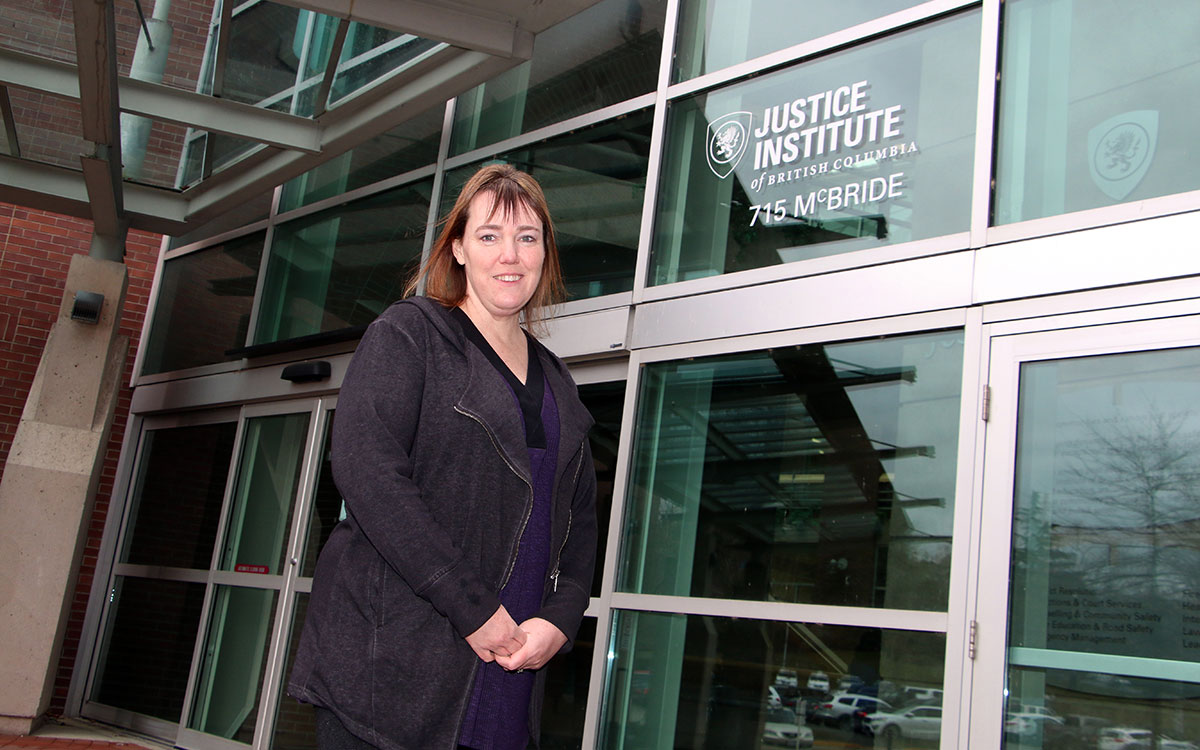From pharmacy technician to accountant, Tammy Hull has had a varied career living in Prince George, but it was her experience with hospice house nurses when her grandmother passed that ultimately led her to become a registered nurse.
So when a workplace injury left her unable to return to her position in the neonatal intensive care unit, she was left wondering, ‘what’s next’?
A nursing colleague who worked in licensing told her about the then-new Advanced Specialty Certificate in Community Care Licensing program at the Justice Institute of British Columbia (JIBC) which she called a great learning opportunity.
Being a life-long learner, “The words ‘learning opportunity’ caught my attention and the fact the program was delivered online,” said Tammy. “I have always heard great reviews of JIBC programs so I applied and was accepted to the program.”
Tammy became the first graduate of JIBC’s Community Care Licensing program, the only such program of its kind in Canada.
“I always recommend the program to colleagues because I believe that JIBC supports the professional learning outcomes of its students,” Tammy said. “The program prepares learners to apply licensing standards to their professional practice when providing regulatory oversight to licensed facilities.”
I always recommend the program to colleagues because I believe that JIBC supports the professional learning outcomes of its students
Community Care Licensing Officers are employed through provincial health authorities, providing regulatory oversight to support the health and safety of the most vulnerable members of our society – children, seniors and people with disabilities. Licensing officers provide regulatory oversight to licensed facilities such as child care, youth residential care, adult residential group care and long-term care in BC.
Licensing officers conduct inspections, complete investigations, and provide education and support to licensees. A licensing officer’s role is to work in collaboration with licensed facilities. If areas of non-compliance occur the goal of licensing is to support licensed facilities to achieve compliance with the legislation that governs them.
Upon graduation from the program, Tammy applied for a position as a Regional Residential Licensing Officer with Northern Health Authority. She says she felt prepared for the job interview questions she faced because of the knowledge gained in the program. She was offered the position and hasn’t looked back.
Tammy said the training provided by JIBC taught her practice standards for licensing. Any questions she encountered were answered by her recollection of the course material and support from colleagues already practising in the field.
“As a registered nurse we practice within a code of ethics and practice standards so applying the standards of practice comes naturally," she said.
“What I really appreciated about the program was the reflection piece – how am I going to apply critical thinking and practice standards to my regulatory practice as a licensing officer. It is the process of critical thinking that supports my practice every time I answer the phone, answer an email, or work with a licensed facility in the capacity of a licensing officer; this concept was brought up consistently throughout the program.”
Now 48, she’s been in her current role for two years and doesn’t hesitate to say she loves her job. While she loved being an acute care nurse, the JIBC program helped open her eyes to different opportunities that exist in the licensing profession.
“Being a licensing officer is a perfect fit for me, I look forward to a long career in licensing and sharing my knowledge with colleagues and community members.”
For more information visit: JIBC’s Advanced Specialty Certificate in Community Care Licensing.
